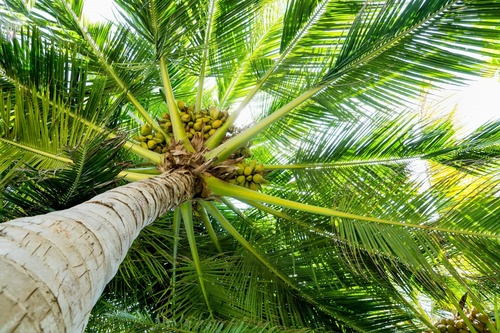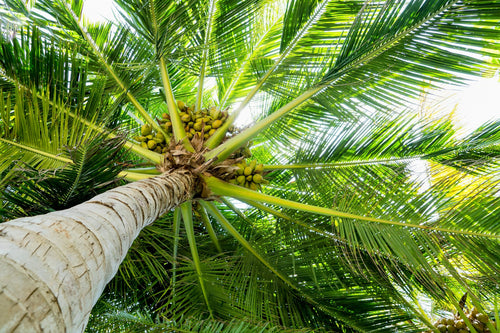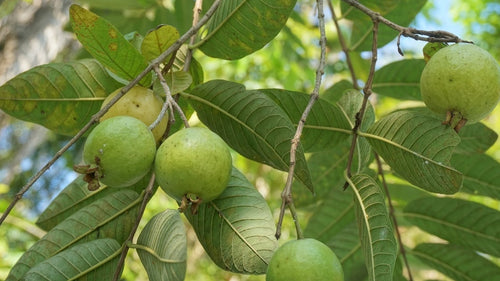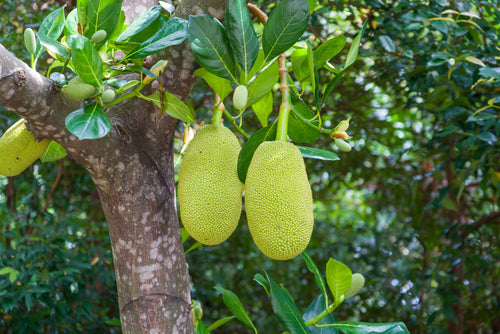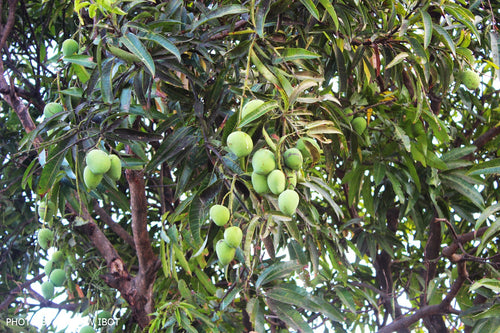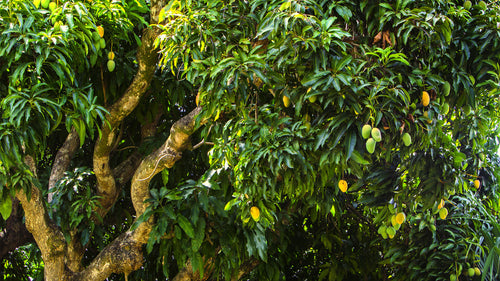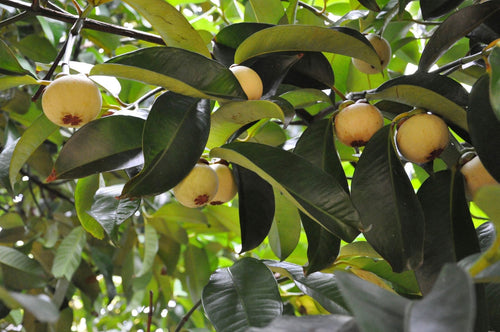Planting for Progress: Nagarkot Forwarders Marks Women’s Day with Agroforest Planting
Nagarkot Forwarders, a renowned destination management company in India, is committed to creating unforgettable travel experiences while fostering env Read more
Project Update 1



Digital Forest
Forest with 9 Trees planned
Want to plant your tree now?
Plant a Tree @ 299Planting for Progress: Nagarkot Forwarders Marks Women’s Day with Agroforest Planting
Nagarkot Forwarders, a renowned destination management company in India, is committed to creating unforgettable travel experiences while fostering environmental sustainability. In celebration of Women’s Day, Nagarkot Forwarders launched a unique tree plantation initiative in the agroforest concept. This initiative emphasizes the importance of empowering women and supporting environmental preservation by planting trees in agroforests an eco-friendly and sustainable method that combines agricultural practices with forestry.
The Women’s Day tree plantation activity not only celebrated the contributions of women but also aimed to create a lasting impact on the environment. The company involved local communities and farmers in the plantation process, ensuring the integration of trees into the agroforest ecosystem. Through this initiative, Nagarkot Forwarders aimed to strengthen the bond between women, nature, and sustainable development, promoting the significance of environmental responsibility as part of their core values.
By participating in this meaningful project, Nagarkot Forwarders underscores its dedication to enhancing corporate social responsibility (CSR) while enriching the lives of women and local communities. This tree plantation effort is a symbol of nurturing growth, both for the environment and for the empowerment of women, helping create a greener and more sustainable future for all.
Tree Plantation Date
8th March 2024
Plantation Location
Sahayadri Van, Girvi, Satara 415523
Trees Planted
Total Count: 9 Trees
Species Name: Mango, Guava, Chiku, Jackfruit, Coconut
Forest Type: Agroforest
On the occasion of Women’s Day, Nagarkot Forwarders celebrated the spirit of empowerment and sustainability through a meaningful tree plantation initiative in the agroforest concept. This initiative, blending agricultural practices with forestry, focused on creating a sustainable environment while promoting gender equality. In collaboration with local communities and farmers, Nagarkot Forwarders planted trees that will thrive in the agroforest, benefiting both the ecosystem and surrounding communities. By celebrating Women’s Day with this eco-friendly initiative, Nagarkot Forwarders not only honored the contribution of women but also reinforced its commitment to environmental stewardship, highlighting the importance of sustainable practices in fostering both ecological and social well-being.
Advantages Of Agroforest
Environmental Sustainability
Agroforestry integrates trees into agricultural systems, improving biodiversity, enhancing soil quality, and reducing soil erosion. By planting trees in the agroforest, Nagarkot Forwarders contributes to building a more resilient ecosystem, where the interaction between trees and crops creates a balance that supports long-term environmental sustainability. This reduces the negative impacts of monoculture farming and supports the growth of diverse plant and animal species.Climate Change Mitigation
Trees play a vital role in absorbing carbon dioxide, a major greenhouse gas responsible for climate change. The agroforest plantation by Nagarkot Forwarders helps in carbon sequestration, reducing the overall carbon footprint of the region. With the rising concern over climate change, such initiatives contribute to mitigating global warming by capturing CO2 from the atmosphere and storing it in biomass and soil.Improved Agricultural Productivity
The integration of trees into agricultural land can lead to enhanced productivity. Trees provide shade, reduce wind erosion, and improve microclimates for crops, all of which contribute to better yields. For farmers involved in this initiative, the agroforest system can increase agricultural output and diversify income sources by providing both timber and non-timber products like fruits, nuts, and medicinal plants, making it a win-win for local communities.Support for Local Communities and Women
Involving local communities, especially women, in the tree plantation initiative empowers them with the skills and knowledge required for sustainable farming practices. Women are often key contributors to agricultural activities, and by involving them in agroforestry, Nagarkot Forwarders creates opportunities for economic independence, education, and leadership. This also strengthens the social fabric and fosters collaboration within the community.Long-term Economic Benefits
Agroforestry systems offer long-term economic benefits by providing diverse sources of income. As trees mature, they produce timber, fruits, and other resources that can be sold or utilized, creating a steady flow of income for local farmers. By participating in this initiative, Nagarkot Forwarders helps local communities build a sustainable economic foundation, which can help in uplifting their living standards over time.Restoration of Degraded Lands
In many areas, agricultural land can become degraded due to excessive use or deforestation. Agroforestry helps restore these lands by replenishing soil nutrients and improving water retention, making it more productive and fertile. Nagarkot Forwarders' tree plantation initiative aids in rehabilitating degraded ecosystems, transforming them into productive agroforests that benefit both the environment and local people.Promotion of Gender Equality
The Women’s Day tree plantation initiative directly addresses gender equality by providing women with equal opportunities to participate in environmental conservation efforts. It fosters a sense of empowerment among women, as they engage in meaningful, community-driven activities that have a lasting positive impact on both the environment and society. This initiative sends a strong message about the importance of women's involvement in sustainability and conservation practices.Enhanced Water Management
Trees in agroforests help improve water retention in the soil, reduce runoff, and prevent waterlogging, which is particularly beneficial in regions prone to floods or droughts. By planting trees as part of the agroforest initiative, Nagarkot Forwarders is contributing to improved water management practices that benefit both agricultural lands and surrounding ecosystems, ensuring that water resources are used more efficiently and sustainably.
Activities During Tree Plantation
During Nagarkot Forwarders' tree plantation initiative, the focus was on promoting sustainability and empowering local communities. All plantation activities were carried out by farmers, who played a central role in the process. The initiative followed the agroforest concept, where trees were integrated into agricultural land to create a symbiotic relationship between crops and forestry. The farmers carefully planted a variety of selected tree species suited for the local environment, ensuring they would thrive and contribute to soil health, biodiversity, and climate resilience. The trees were strategically planted to enhance agricultural productivity, reduce soil erosion, and improve water retention. Farmers were also involved in nurturing the young plants through regular watering and care, ensuring their long-term growth and sustainability. This initiative not only contributed to environmental conservation but also strengthened the role of farmers in sustainable land management practices.
Tree Plantation Purpose
Sustainable Development Goals (SDGs) achieved through Nagarkot Forwarders' tree plantation initiative in the agroforest manner on the occasion of Women’s Day
1. SDG 1: No Poverty
The agroforest initiative supports local farmers by improving agricultural productivity and providing additional sources of income through timber, fruits, and other non-timber products. This increases the financial stability of farming communities, particularly women, by offering diverse revenue streams. With more sustainable agricultural practices, farmers can achieve greater food security and reduce poverty, directly aligning with the goal of eradicating poverty.2. SDG 2: Zero Hunger
Agroforestry systems enhance food security by diversifying the crops grown and improving soil health. The trees planted during this initiative help prevent soil erosion and retain water, creating more resilient agricultural land. This increases the productivity of farming and ensures a stable food supply for local communities, contributing to the goal of ending hunger and promoting sustainable agriculture practices.3. SDG 5: Gender Equality
By involving women in the tree plantation initiative, Nagarkot Forwarders directly contributes to empowering women in the community. The participation of women in agroforestry helps them gain knowledge, skills, and leadership opportunities in sustainable agricultural practices. This initiative not only highlights the importance of women's role in environmental stewardship but also fosters gender equality by creating economic opportunities for women through sustainable agricultural and forestry practices.4. SDG 6: Clean Water and Sanitation
Trees planted in the agroforest help improve water retention in the soil, reduce runoff, and prevent waterlogging. This contributes to better water management and enhances the quality of local water resources. By integrating trees into agricultural landscapes, Nagarkot Forwarders promotes sustainable water management practices, ensuring that clean water is available for farming and local communities, in line with the goal of ensuring the availability and sustainable management of water for all.5. SDG 8: Decent Work and Economic Growth
The involvement of farmers in the agroforest tree plantation initiative fosters job creation and economic growth. By integrating tree planting into agricultural practices, local farmers, particularly women, gain valuable skills that improve their livelihoods. This initiative supports the creation of green jobs, encourages sustainable farming practices, and helps local communities build long-term economic resilience.6. SDG 12: Responsible Consumption and Production
Through agroforestry, Nagarkot Forwarders promotes sustainable land use practices that combine agriculture with forestry. This helps optimize the use of resources by creating a diversified, productive system that reduces waste and supports the sustainable production of both crops and timber. The initiative encourages the responsible use of natural resources, ensuring that environmental practices are in harmony with agricultural needs, promoting long-term sustainability.7. SDG 13: Climate Action
The tree plantation initiative plays a critical role in mitigating climate change by reducing carbon emissions. Trees absorb carbon dioxide from the atmosphere, helping to combat global warming. The agroforest concept, where trees are integrated with crops, contributes to building a resilient ecosystem that can withstand the impacts of climate change. This initiative directly supports efforts to reduce the effects of climate change by enhancing carbon sequestration, improving soil health, and increasing biodiversity.8. SDG 15: Life on Land
The tree plantation initiative directly supports SDG 15 by contributing to the restoration and conservation of terrestrial ecosystems. Agroforestry enhances biodiversity, prevents soil degradation, and provides habitats for various species. By planting trees and integrating them into agricultural landscapes, Nagarkot Forwarders contributes to the regeneration of ecosystems, preventing deforestation, and promoting land restoration efforts, which are critical for the health of the planet’s ecosystems.
ESGs Achieved Through Agroforestry
Environmental (E)
Nagarkot Forwarders' tree plantation initiative in the agroforest concept significantly contributes to environmental sustainability. By planting trees that integrate into agricultural landscapes, the initiative helps combat deforestation, enhance biodiversity, and improve soil quality. The trees contribute to carbon sequestration, mitigating the effects of climate change by absorbing CO2 from the atmosphere. Additionally, the agroforest system improves water retention, reduces soil erosion, and supports sustainable land management practices. This initiative aligns with environmental goals by creating a resilient ecosystem that benefits both the environment and local communities.Social (S)
On the social front, the initiative focuses on community empowerment, particularly the involvement of women in tree plantation activities. Nagarkot Forwarders actively fosters gender equality by ensuring that women are part of the environmental stewardship process, providing them with skills and opportunities to engage in sustainable agricultural practices. The initiative promotes local community participation, strengthens social cohesion, and improves the livelihoods of farmers. By integrating women into this eco-friendly project, Nagarkot Forwarders supports social inclusion, education, and economic independence, making a positive impact on the social fabric of the region.Governance (G)
Nagarkot Forwarders' partnership with Grow Billion Trees has played a crucial role in achieving strong governance within its ESG framework through the tree plantation initiative in the agroforest concept. By collaborating with Grow Billion Trees, Nagarkot Forwarders has ensured that the project is executed with transparency, accountability, and ethical practices. The partnership has facilitated the use of well-established, sustainable agroforestry methods, ensuring that every phase of the initiative from planning to execution aligns with governance principles of responsible management and long-term sustainability. Furthermore, Grow Billion Trees' expertise in environmental conservation has helped Nagarkot Forwarders establish clear metrics for monitoring and reporting progress, ensuring the initiative's impact is measured effectively. This collaboration promotes transparency, fosters community engagement, and enhances the credibility of Nagarkot Forwarders' commitment to ethical governance, ultimately driving the success of their environmental and social initiatives.
Commitment by Grow Billion Trees
Grow Billion Trees is committed to driving sustainable plantation efforts, ensuring every initiative aligns with key environmental objectives and promotes long-term ecological balance. They focus on selecting native tree species that are well-adapted to local ecosystems, ensuring a higher survival rate and stronger environmental impact.
To maintain plant health and longevity, Grow Billion Trees emphasizes continuous maintenance and regular monitoring of the plantations. This approach helps ensure that each tree thrives, contributing effectively to both biodiversity and climate resilience.
Transparency is a core principle in their operations. Clients receive comprehensive reports, including geo-tagging of planted trees, survival rate updates, and ongoing progress reports. This level of openness allows clients to track the direct impact of their contributions, reinforcing trust and accountability.
Through their dedication to sustainable practices, Grow Billion Trees ensures that every plantation project leaves a lasting positive footprint on both the environment and the local communities it serves.
Summary
Nagarkot Forwarders celebrated Women’s Day by launching a tree plantation initiative in the agroforest manner, combining sustainability with empowerment. The initiative focused on integrating trees into agricultural landscapes to promote environmental health while enhancing the livelihoods of local communities. Farmers, particularly women, were actively involved in the planting process, helping to restore ecosystems, improve soil quality, and promote biodiversity. By embracing the agroforest concept, Nagarkot Forwarders not only contributed to combating climate change through carbon sequestration but also empowered women by providing them with new skills and economic opportunities in sustainable agriculture. This initiative exemplified the company’s commitment to environmental sustainability, gender equality, and community well-being, making it a significant step towards a greener, more inclusive future.
Trees for Corporates
Trending
Most Popular
1. Agroforestry Benefits
Agroforestry is not just about planting trees and hoping for the best. It’s a proven method to boost agricultural productivity while nurturing the environment. In Nagarkot Forwarders' tree plantation initiative, the agroforest concept marries the best of both worlds. By integrating trees into crop systems, it helps reduce soil erosion, improves water retention, and enhances biodiversity. The trees act as natural barriers, protecting crops from harsh weather, while also absorbing carbon dioxide—giving the planet a much-needed breather. Not to mention, agroforestry helps increase farm resilience to climate change by diversifying the landscape. It’s a win-win situation for farmers and Mother Nature. So, if you're wondering how trees can help your crops grow better, agroforestry is the answer!
2. Sustainable Agriculture Practices
Sustainable agriculture practices are the backbone of a healthy planet, and Nagarkot Forwarders has embraced this concept with their tree plantation initiative in the agroforest model. By planting trees alongside crops, the initiative promotes soil fertility, conserves water, and reduces the need for chemical fertilizers and pesticides. Agroforestry provides a natural and balanced approach to farming that ensures long-term food production while maintaining environmental health. In addition, it supports biodiversity by creating habitats for wildlife and pollinators. So, let’s plant trees and harvest the benefits of sustainable farming—not just for today, but for generations to come!
3. Environmental Impact of Agroforestry
The environmental impact of agroforestry is nothing short of remarkable. When Nagarkot Forwarders adopted the agroforest concept for its tree plantation initiative, they were taking a giant leap toward a greener future. This practice significantly reduces deforestation, conserves biodiversity, and helps mitigate climate change. Trees help regulate local microclimates, improve soil structure, and prevent erosion. The trees' root systems also promote better water filtration, which improves local water quality. Agroforestry is the ultimate superhero, working silently behind the scenes to make farming more sustainable and eco-friendly. By planting trees, we don’t just create greener landscapes—we give the planet a fighting chance against climate change!
4. Tree Plantation for Soil Health
Soil health is vital for any successful farming venture, and trees can work wonders to improve it. Through Nagarkot Forwarders' agroforestry tree plantation initiative, they’ve found that trees aren’t just pretty to look at—they’re soil superheroes. Tree roots help break up compacted soil, allowing for better water infiltration. As trees shed their leaves, they provide organic matter that enriches the soil, boosting its nutrient content. Furthermore, agroforestry practices create a diverse environment, which helps prevent soil degradation and maintains long-term agricultural productivity. So, next time you see a tree, remember—it's not just a tree. It’s a soil-saving champion!
5. Empowering Women Through Agroforestry
What’s better than empowering women and saving the planet at the same time? Nagarkot Forwarders’ tree plantation initiative makes this dream a reality. By involving women in agroforestry, the company not only promotes gender equality but also strengthens local communities. Women are often the backbone of agricultural work, and involving them in tree planting allows them to gain valuable skills while supporting sustainable farming practices. This approach provides women with economic opportunities and encourages leadership in environmental conservation. Empowering women in agroforestry is a green way to ensure that both the environment and society flourish.
6. Carbon Sequestration Through Tree Planting
Carbon sequestration is the process of capturing and storing atmospheric carbon dioxide. Trees are natural carbon sinks, absorbing CO2 and reducing its presence in the atmosphere. In Nagarkot Forwarders' agroforestry tree plantation initiative, this process plays a crucial role in combating climate change. By planting trees as part of an integrated farming system, the company helps mitigate the impact of global warming. Agroforestry goes beyond carbon storage; it also creates more resilient ecosystems that adapt to climate change, benefiting both farmers and the planet. So, each tree planted is a tiny victory in the battle against climate change.
7. Agroforestry for Biodiversity Conservation
Agroforestry doesn’t just benefit farmers; it’s a win for wildlife too! Nagarkot Forwarders’ tree plantation initiative in the agroforest concept helps conserve biodiversity by providing habitats for various species. The trees planted in this initiative act as shelter and food for local fauna, helping to restore balance in ecosystems. In addition, the variety of plants grown in agroforestry systems supports pollinators, which are essential for food production. By planting trees in agricultural landscapes, Nagarkot Forwarders is contributing to the conservation of biodiversity while ensuring that farming remains productive and sustainable. Biodiversity thrives when nature and agriculture work together!
8. Agroforestry and Community Development
farmers gain diverse sources of income through timber, fruits, and other products, helping to improve their standard of living. With trees planted alongside crops, agroforestry creates a robust, resilient farming community where both people and the planet prosper. It’s not just farming; it’s community building at its finest!
FAQ
What is agroforestry, and how does it benefit tree plantation?
Agroforestry is a land-use system where trees are integrated with crops or livestock to create more sustainable and productive agricultural landscapes. By planting trees alongside crops, agroforestry improves soil health, reduces erosion, enhances biodiversity, and increases water retention. At Nagarkot Forwarders, we adopt the agroforest concept to ensure our tree plantation efforts provide long-term environmental and economic benefits. This approach helps farmers by diversifying their income while supporting climate change mitigation.
What role does Nagarkot Forwarders play in tree plantation initiatives?
At Nagarkot Forwarders, we are dedicated to promoting sustainability through our tree plantation initiatives, particularly in agroforestry. By collaborating with local farmers and communities, we ensure that our efforts result in long-lasting environmental and social impacts. Our goal is to create green spaces that contribute to environmental conservation while empowering local communities—especially women—by providing them with skills and opportunities in sustainable farming practices. Through our initiatives, we actively support biodiversity, improve soil health, and enhance carbon sequestration.
What are the benefits of planting trees for women in India?
Tree plantation initiatives offer significant benefits for women, particularly in rural India. In our agroforestry projects, Nagarkot Forwarders involves women in planting and maintaining trees, empowering them with new skills and income-generating opportunities. This involvement fosters gender equality and enables women to play an active role in sustainable farming. By offering training in agroforestry, women gain valuable expertise, which helps improve their social and economic status, ultimately contributing to a more equitable and sustainable future.
How does tree planting contribute to environmental sustainability?
Tree planting is a powerful tool for environmental sustainability. Trees absorb carbon dioxide from the atmosphere, helping mitigate climate change. At Nagarkot Forwarders, we focus on agroforestry, where trees play a vital role in enhancing soil health, reducing erosion, and increasing water retention. Additionally, trees promote biodiversity by providing habitats for wildlife. Our initiatives contribute to a cleaner, greener environment, supporting both nature and agricultural productivity. Planting trees is not just an action; it's a long-term investment in a healthier planet.
How does agroforestry benefit farmers in India?
Agroforestry offers multiple benefits to farmers, particularly in improving soil fertility and increasing agricultural productivity. Trees in agroforestry systems provide shade, reduce soil erosion, and create a natural barrier against strong winds and heavy rains. By planting trees alongside crops, farmers can diversify their income sources through timber, fruits, and other products. At Nagarkot Forwarders, we support farmers in adopting agroforestry techniques, which enhance their resilience to climate change and offer long-term sustainability in their farming practices.
How does Nagarkot Forwarders ensure the success of its tree plantation projects?
At Nagarkot Forwarders, we ensure the success of our tree plantation projects by closely working with local communities and farmers. Our tree planting initiatives in the agroforest concept are meticulously planned, with the site prepared beforehand to ensure proper growth. We collaborate with experts and provide training to farmers, especially women, on how to maintain the trees. We also monitor the progress regularly to make sure the trees thrive and contribute positively to the environment and local economy. Our approach focuses on long-term impact and sustainability.
What impact does agroforestry have on local biodiversity?
Agroforestry significantly enhances local biodiversity by creating diverse ecosystems where both plants and wildlife can thrive. Trees planted in agroforestry systems provide habitats for birds, insects, and other animals, encouraging natural pollination and pest control. By integrating trees with crops, the diversity of plant species increases, which boosts the overall health of the ecosystem. At Nagarkot Forwarders, we adopt the agroforest concept to support biodiversity conservation while benefiting farmers through improved agricultural practices and increased productivity.
What are the environmental advantages of the agroforest concept?
The agroforest concept, which integrates trees into farming systems, offers multiple environmental advantages. Trees improve soil health, increase water retention, and reduce soil erosion. They act as carbon sinks, absorbing CO2 and mitigating the effects of climate change. In addition, trees support biodiversity by providing habitats for various species. At Nagarkot Forwarders, we leverage the agroforest concept to create more sustainable farming practices, ensuring long-term environmental health while benefiting local communities economically and socially.
How does tree planting help mitigate climate change?
Tree planting plays a crucial role in mitigating climate change by absorbing carbon dioxide, a major greenhouse gas, from the atmosphere. Trees naturally sequester carbon through photosynthesis, which helps reduce the overall carbon footprint. At Nagarkot Forwarders, we focus on agroforestry, where trees are integrated into agricultural systems to maximize their environmental benefits. This approach not only helps combat climate change but also enhances the resilience of farms to extreme weather conditions caused by changing climates.
Why is it important to celebrate Women’s Day with a tree plantation initiative?
Celebrating Women’s Day with a tree plantation initiative highlights the crucial role women play in sustainable agriculture and environmental conservation. At Nagarkot Forwarders, we involve women in our tree plantation projects, empowering them with skills, knowledge, and opportunities in agroforestry. This initiative celebrates women's contributions to community development, sustainability, and climate change action. It fosters gender equality by offering women a platform to participate actively in the environmental sector while ensuring that our efforts create a lasting impact on both the environment and society.
- Choosing a selection results in a full page refresh.
- Opens in a new window.


